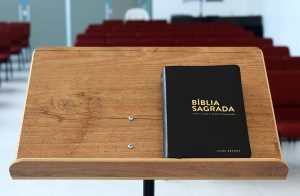-
John Wesley (1703–1791) was an Anglican evangelist, theologian, and co-founder of Methodism. Wesley was born in the small English town of Epworth and was the fifteenth child of Samuel and Susanna Wesley. John’s father was an Anglican priest. John decided to enter the ministry as well, and he trained at Oxford. There, he began meeting with another group of students, which included his brother Charles and George Whitfield. They would pray, study Scripture, and observe communion. This group was somewhat mockingly called “the Holy Club” by other students. They were also called “Bible bigots” and “Methodists” because of the prescribed method of spiritual disciplines that they followed. Of course, Methodist would later become the name by which those who followed the prescribed methods (spiritual disciplines) would be called.
In 1735 John traveled to the American Colonies to be the parish pastor in Savannah, Georgia, and also to do missions work among the Native Americans. On the trip across the Atlantic, his ship was caught in a violent storm. John cowered in fear of his life, but he noticed that a group of Moravians seemed to have no fear of death whatsoever. Wesley recognized that the Moravians had something he was lacking. Then his ministry in Savannah lasted only two years and was marked by difficulty, ineffectiveness, and even scandal. He virtually fled back to England.
In light of his own assessment, it seems the best explanation for Wesley’s fear of death and ineffectiveness in ministry is that, although he had been trained as a clergyman and was involved in the spiritual disciplines, he had not truly come to faith in Christ for himself. He wrote in his journal on December 2, 1737, “I went to America to convert the Indians; but O! who shall convert me?” Spiritual disciplines such as prayer, Bible reading, and fasting are helpful for a believer to strengthen and deepen a relationship with Christ, but if a person has not come to faith in Christ and been born again by the Spirit of God first, then no amount of spiritual discipline will ever bring about spiritual life. In fact, the road to hell can be paved with spiritual disciplines and good deeds.
Upon his return to England, John Wesley came under the influence of a Moravian minister who taught him further about justification by faith and assurance of salvation. On May 24, 1738, Wesley made a journal entry that is now famous. As Wesley heard someone read a passage from Martin Luther’s preface to Romans, he had a conversion experience: “While he was describing the change which God works in the heart through faith in Christ, I felt my heart strangely warmed. I felt I did trust in Christ, Christ alone for salvation: and an assurance was given to me that he had taken away my sins, even mine, and saved me from the law of sin and death.” Thus John joined his brother Charles in true faith in Christ.
Although thoroughly evangelical, John Wesley rejected the doctrine of election and also subscribed to the doctrine of Christian perfectionism or entire sanctification. Wesleyan theology today is noted for its Arminian stance.
After his conversion, John Wesley began enthusiastically preaching the gospel wherever he could. He began holding “Methodist” meetings outdoors, and revival broke out. Methodism became recognized as an evangelical movement within the Church of England, and John was a loyal member of the Anglican Church all his life, even as his followers began forming themselves into a new denomination. Wesley felt any Christian could be a “methodist” and remain loyal to his own church as well.
Wesley said that he viewed the world as his parish. He teamed with George Whitfield and preached with great success in the New World. It’s estimated that during his lifetime John Wesley covered a quarter of a million miles on horseback in England, Ireland, and Scotland and preached over 40,000 sermons. Since trained ministers were not generally sympathetic to Wesley’s kind of ministry, he trained laymen to become itinerate preachers—Methodist “circuit riders” to circulate throughout the countryside and hold services. Besides preaching the gospel, John Wesley was active in social reform causes including abolitionism, prison reform, and easy access to education.
John Wesley’s ministry changed the religious landscape of England and the American Colonies, and his influence is still being felt today. His The Journal of John Wesley is a classic of Christian literature. The Methodist and Wesleyan churches around the world owe their existence to John Wesley’s leadership and vision.
FOR FURTHER STUDY
John Wesley: A Biography by Stephen TomkinsMore insights from your Bible study – Get Started with Logos Bible Software for Free!
Questions about Church History.























3 Responses
Your article gave me a lot of inspiration, I hope you can explain your point of view in more detail, because I have some doubts, thank you. 20bet
I don’t think the title of your article matches the content lol. Just kidding, mainly because I had some doubts after reading the article.
God bless you for coming to our website Feel free to contact if you have any questions or comments.